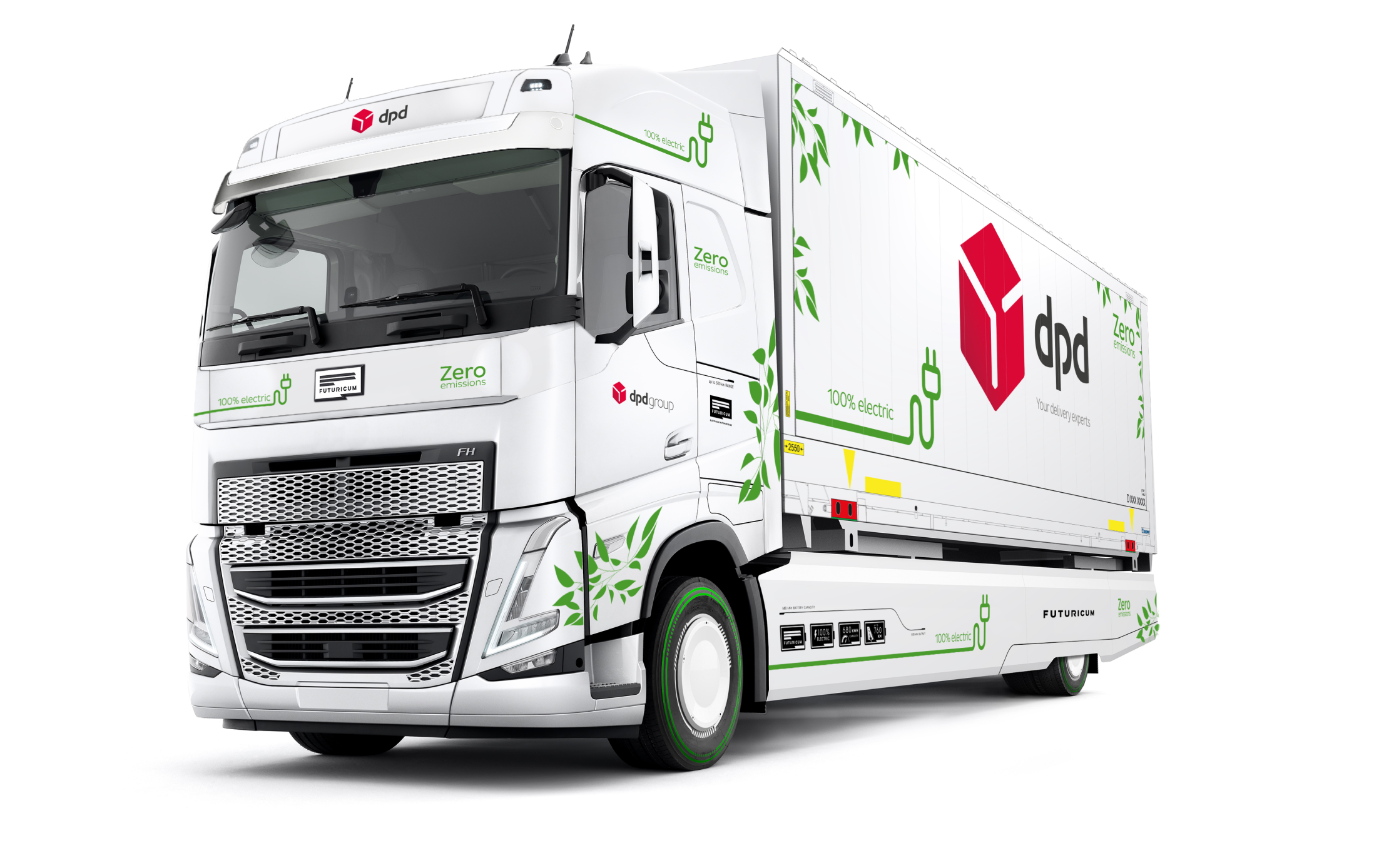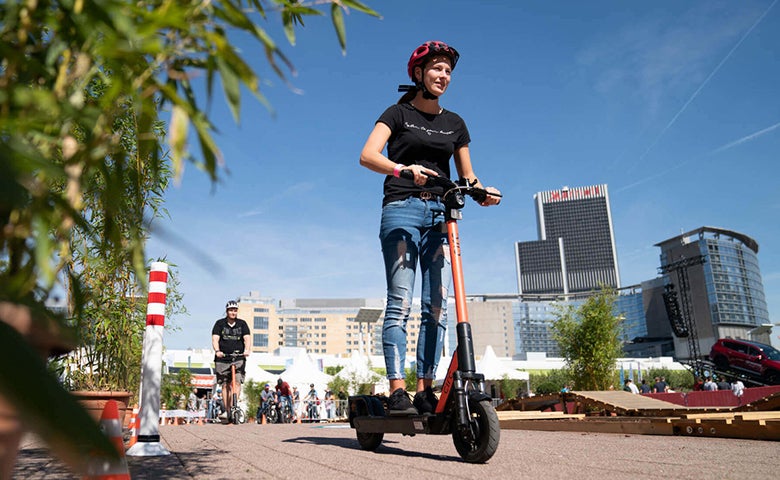
# Future mobility
The Conti GreenConcept at IAA Mobility 2021
Introducing the new GreenConcept tyre at IAA Mobility 2021
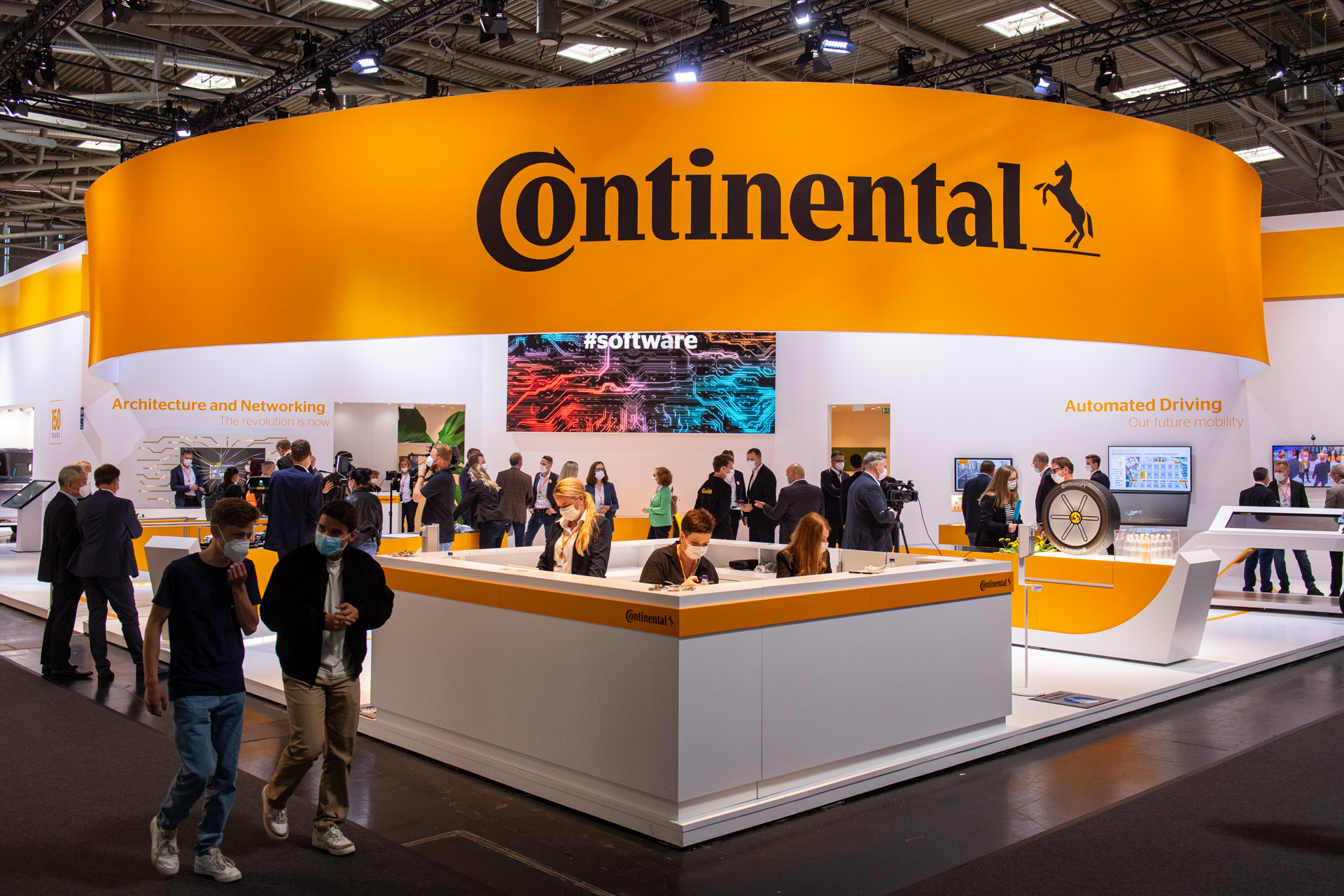
The world's largest international motor show hasn’t just changed its name, it has also shifted its focus from primarily cars to mobility in a much broader sense. IAA Mobility 2021 asked the question, “What will move us next”? In keeping with this fresh approach, the decentralised event was all about eco-friendly innovations, smart future mobility and outside-the-box green solutions to the challenges of our time.
In keeping with this new direction – and with our aim to become the most sustainable tyre company in the world we presented a game-changing tyre study. Watch the video to learn more:
Continental's latest innovation is sustainable, lightweight and efficient
Our GreenConcept tyre features current and future technologies and underlines our commitment to the clean mobility of the future. How? Take a closer look at our IAA Mobility highlight to find out:
Our concept tyre introduced at IAA mobility 2021 minimises resource consumption throughout the entire value chain, from raw material sourcing through every stage of production and beyond, including new ways of extending service life. It was designed with future sensor-based smart vehicles with resource-saving drives in mind and allows them to perform even more efficiently.
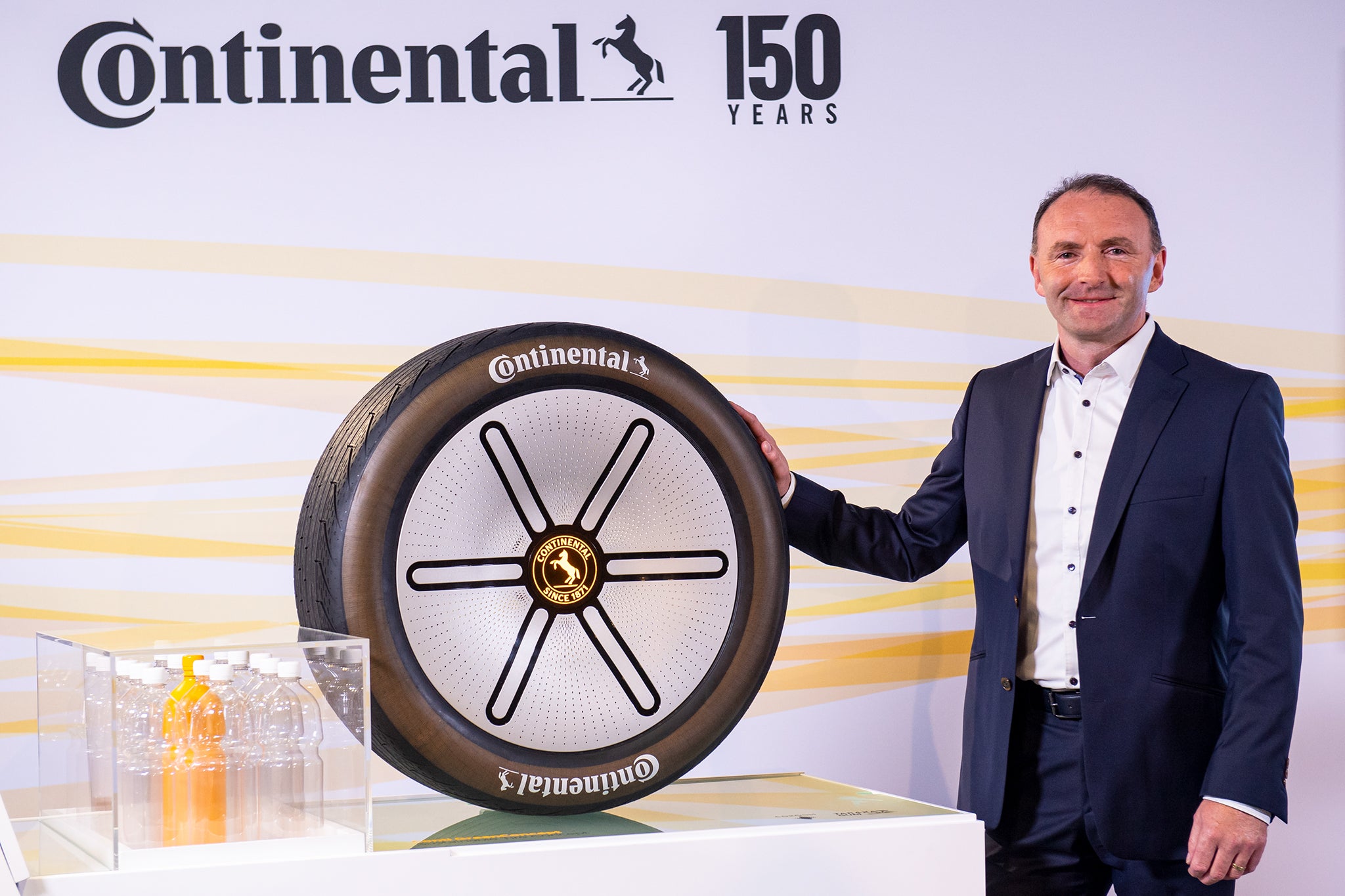
Our GreenConcept tyre is made from renewable raw materials like natural rubber from dandelions, silicate from rice husk ashes, as well as vegetable oils and resins. It also contains a large proportion of recycled materials, reusing everything from PET bottles to rubber from worn tyres to reduce the amount of virgin raw materials needed for tyre production.
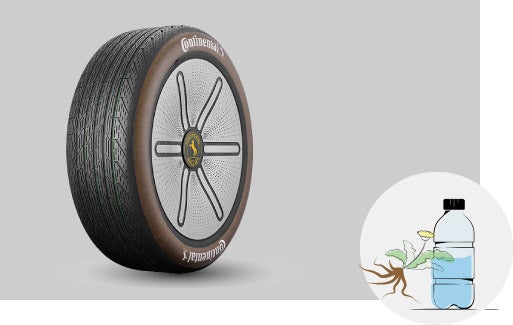
The 52% share in renewable and recycled materials used is a big step towards our ultimate goal to switch all our tyre production to sustainable materials by 2050 at the latest.
Thanks to an optimised tread pattern, a new type of casing structure, and a special sidewall and weight-optimised bead, the Conti GreenConcept tyre is up to 40% lighter than today’s standard tyres. That means it uses less material, but the reduced weight also helps extend the range of electrical vehicles by up to 6%.
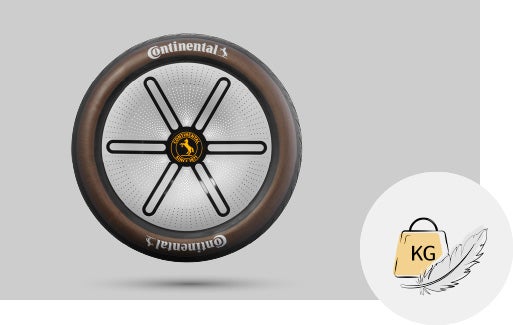
Worn tread doesn’t mean the end of the life of the tyre. Our GreenConcept can be retreaded more than once, further saving material and costs. In addition, our special tread pattern was designed to improve performance in wet road conditions and has greater safety reserves than a conventional tyre with the same tread depth.
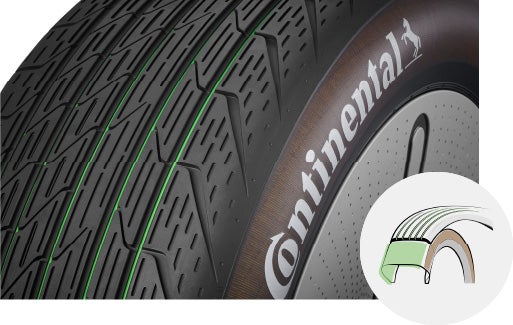
At the same time, reduced rolling resistance increases range and efficiency.
Since our GreenConcept was designed to be used with the car of the future, it is equipped with next-generation sensors that will make the tyres as smart as the vehicle equipped with them. Predictive tyre monitoring will make driving safer, more comfortable, and more efficient.
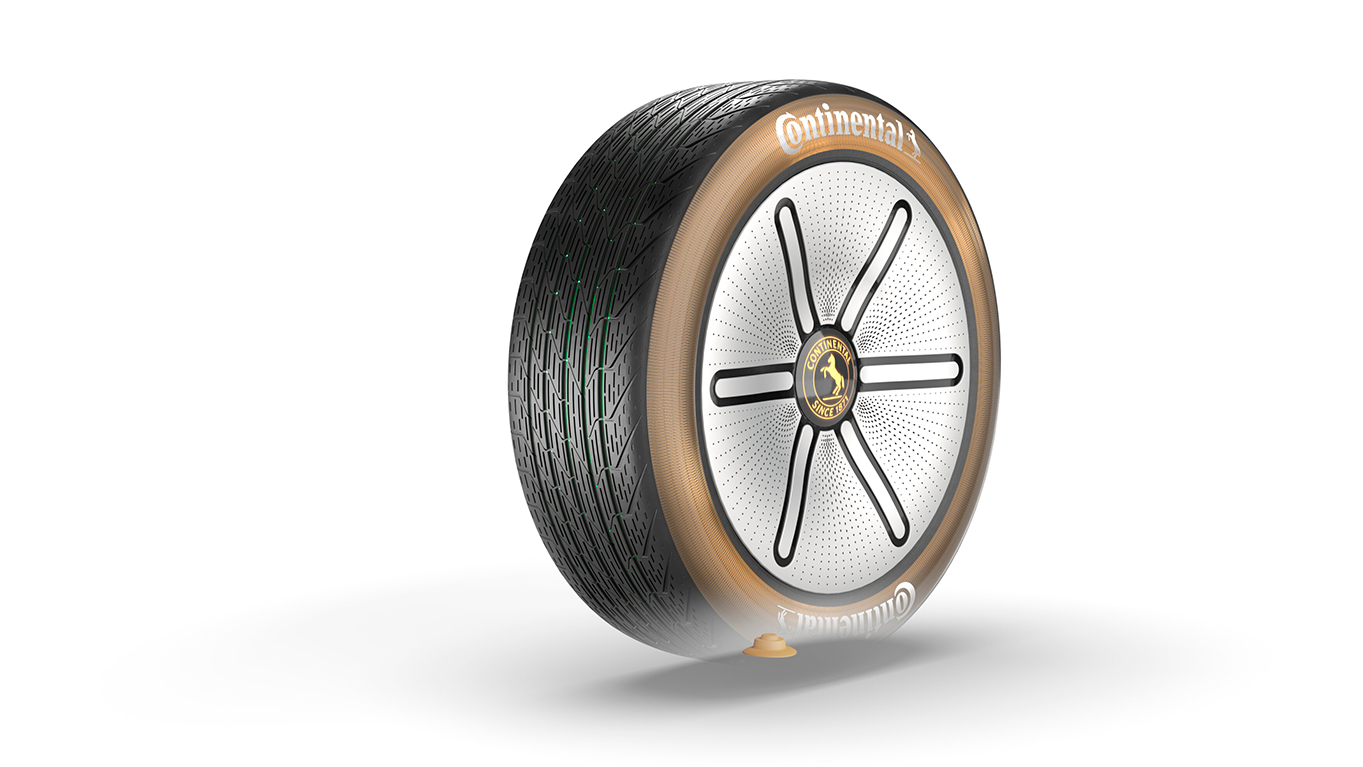
The Continental GreenConcept at a glance
Sustainable, recycled, lightweight, renewable, smart and efficient… That’s a lot of attributes for one tyre – and these are only the basics. Let’s break it down visually in an infographic to show you the most important innovations that make our tyre so special:
- 35% renewable materials
- 17% recycled materials
- 40% lighter
- Reduced rolling resistance increases range
- Sensors monitoring tyre pressure, temperature and tread will make driving safer, more efficient and more comfortable.
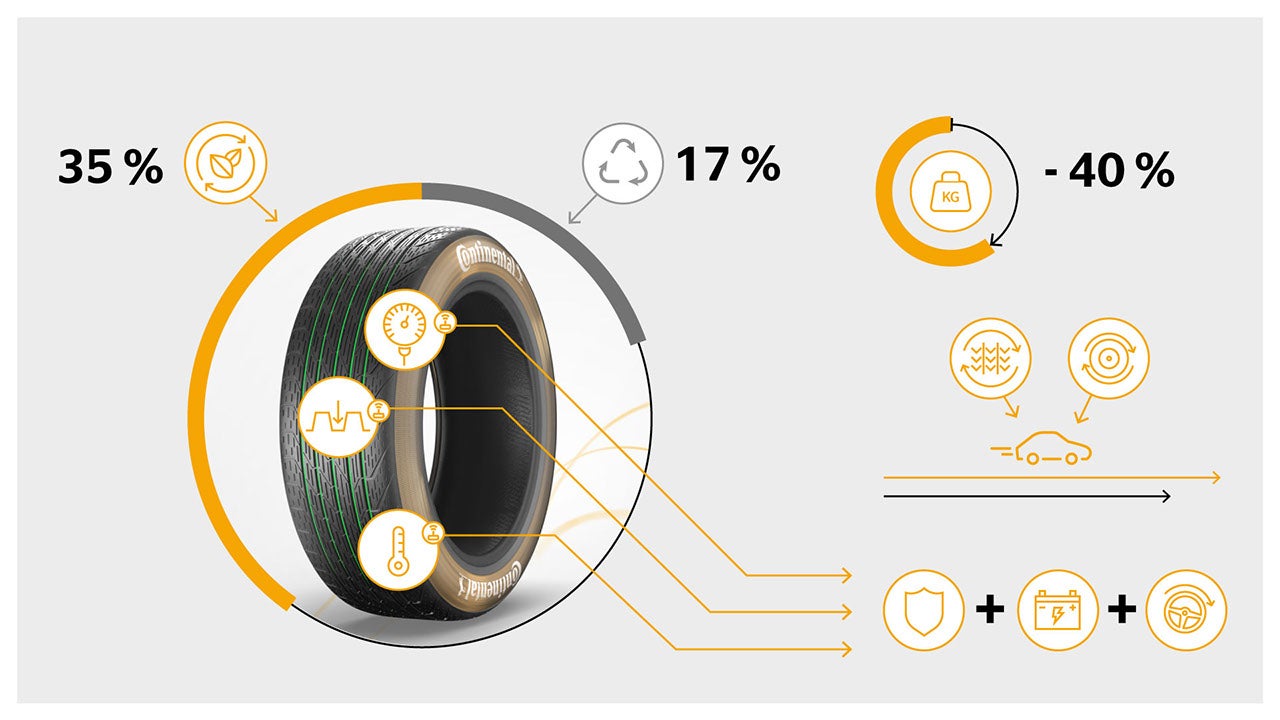
A special guest for a special event
Since trading his highly successful run as a race driver for a second career as a sustainability entrepreneur, Nico Rosberg has been one of the most vocal advocates for the smart, green transport of the future. At IAA Mobility 2021, he was there to witness the launch of our GreenConcept tyre first-hand – and ask Nikolai Setzer, Chairman of the Executive Board of Continental AG, all about this exciting new innovation.
